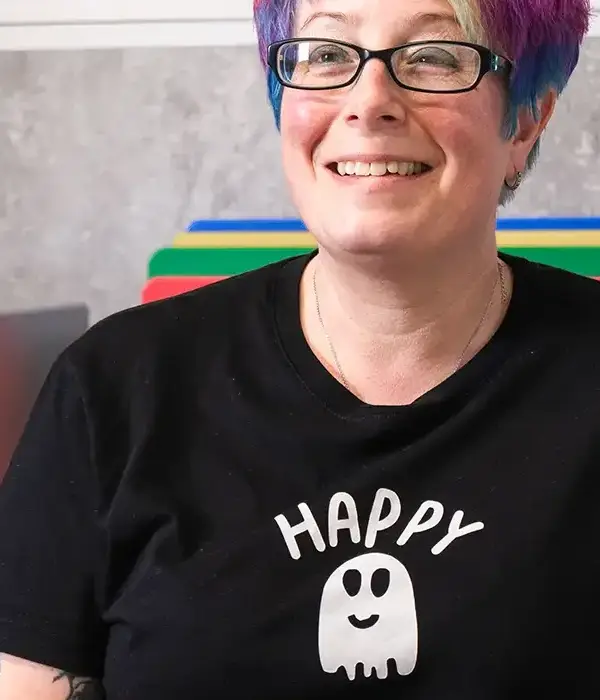Mood Disorder Treatment
If you or someone you care about is struggling with a mood disorder, knowing what help is available can make all the difference. Mood disorder treatment often combines talking therapies, medication, and self-help strategies to help you manage your emotional health. These treatments can aid your daily life and improve your ability to cope with challenges.
Mood disorders like depression and bipolar disorder affect your thinking, behaviour, and feelings, but effective treatments exist. You might use professional support, medical therapies, or a mix of both, depending on your unique needs. Many people find that a personalised approach leads to better outcomes and a higher quality of life.

Take the First Step Towards Recovery
Steps Together offers personalised support and proven treatments, providing the care, guidance and encouragement you need to move forward with confidence and build a healthier future.

Understanding Mood Disorders
Mood disorders are a group of mental health conditions that primarily affect a person’s emotional state, or their mood, hence the term. They involve persistent or extreme mood changes that go beyond typical fluctuations. Common mood disorders include depression, bipolar disorder, and cyclothymic disorder.
These conditions can impact how a person thinks, feels, and functions in day-to-day life. Mood disorders can cause prolonged feelings of sadness, irritability, or periods of elation, and often require professional treatment such as therapy, medication, or a combination of both.
Types of Mood Disorders
Mood disorders are not all the same and include conditions like depression, which is one of the most common in the world, and bipolar disorder. Major depression mainly involves ongoing low mood and loss of interest or pleasure.
Other types include persistent depressive disorder, where mild symptoms last for years, and disruptive mood dysregulation disorder, which often starts in childhood or adolescence. It is crucial that the mental health professional accurately identifies the type of mood disorder you have, since treatment can differ between conditions.


Depressive and Manic Episodes
A depressive episode means you feel very sad, hopeless, and uninterested in activities for at least two weeks. Daily tasks might feel nearly impossible. You could notice changes in sleep, appetite, and low self-worth.
Manic episodes are periods of unusually high mood or energy. You may feel powerful, speak quickly, or take calculated risks. Sometimes, a less intense form of mania called hypomania happens, where you feel energised but not out of control. People with bipolar disorder can oscillate between both.
Evidence-Based Treatment Options
Medication, psychological therapies, and sometimes inpatient rehab can all be used to treat mood disorders. The best option depends on your symptoms, diagnosis, and how you respond to different treatments. Mood disorder treatment may include:
Medication for Mood Disorders
Medication is often a key part of treatment, especially for moderate to severe cases. Common medicines include antidepressants, mood stabilisers, and antipsychotics. Selective serotonin reuptake inhibitors (SSRIs) and serotonin-norepinephrine reuptake inhibitors (SNRIs) are often prescribed first.
Other options include tricyclic antidepressants, monoamine oxidase inhibitors (MAOIs), and, for some people, mood stabilisers like lithium. For severe or treatment-resistant depression, you may be offered newer treatments such as atypical antipsychotics. Healthcare providers typically monitor a person’s dosage, as it can be trial and error.
Inpatient Rehab
Residential treatment is sometimes the best choice for severe mood disorders, treatment-resistant depression, or when safety is a concern. In these settings, you get intensive care and structured support in a hospital or clinic.
Treatment plans usually include a mix of medication, psychotherapy, education, and daily routines. Staff are on hand at all times, so you can receive quick help in a crisis. Inpatient rehab also offers group therapy and occupational activities to help you regain functioning.
Psychological Therapies
Psychological therapies are evidence-based and can be effective both on their own and with medication. Cognitive Behavioural Therapy (CBT) is widely recommended and helps you manage negative thoughts and behaviours.
Other common choices are dialectical behaviour therapy (DBT) and psychodynamic or talk therapy, which can help those with complex or chronic mood disorders. You may also hear about group therapy or mindfulness-based therapies.
Outpatient Rehab
Outpatient treatment care is widely used for mood disorders. These mood disorder treatment programmes provide treatment while allowing you to continue your normal activities. Outpatient settings often include regular therapy sessions with mental health professionals and access to medication monitoring.
You might attend individual, group, or family therapy depending on your needs. Outpatient rehab is most suited when your symptoms do not need 24-hour supervision. Professionals will regularly assess your progress and adjust your treatment plan as needed.
Services that our multi-speciality addiction rehabilitation centres offer
Borderline Personality Disorder (BPD) Treatment
Borderline Personality Disorder (BPD) Treatment

Assessment and Diagnosis
Proper assessment and diagnosis of mood disorders help you get the right treatment plan. Accurate evaluation looks at your symptoms, their impact, and the type of disorder you may be experiencing.
Your evaluation will often begin with an interview about your mood, behaviour, personal history, and medical background. The professional asks detailed questions about your symptoms, sleep habits, energy levels, and if you have ever experienced rapid mood changes.
Severity and Impact Assessment
Understanding the severity of depression or other mood disorders is crucial for determining the appropriate level and urgency of care. Mental health professionals use standardised rating scales and structured interviews to assess how deeply your mood is impacting daily life, relationships, work, and self-care.
These tools provide a clearer picture of your condition and help guide clinical decisions. They also track your progress over time, allowing your care team to adjust your treatment plan when needed, ensuring it continues to meet your evolving needs throughout your recovery journey.

Causes and Risk Factors
If you have a family member with a mood disorder, your risk may be higher. Research shows that inherited traits can play a role in conditions like depression or bipolar disorder. This means certain genes can make you more likely to have problems with your mental wellness.
Medical issues, such as thyroid problems or neurological illnesses, sometimes mimic or trigger mood symptoms. Age and gender can also influence when or how often these disorders appear.
Mood is strongly linked to brain chemistry. The brain uses chemical messengers called neurotransmitters to send signals. Serotonin and norepinephrine are two neurotransmitters that can affect your mood. When these chemicals are out of balance, your chances of developing a mood disorder may increase.
Supportive Strategies and Self-Management
Mood disorder treatment means more than psychiatric care. Supporting your mental health through daily routines, healthy habits, and social support can help you manage mood disorders more effectively. Small changes in key areas of your life can make a noticeable difference in symptoms, energy, and wellbeing.
Lifestyle Changes
Adopting certain lifestyle changes can help you handle mood shifts and emotional challenges. Creating a regular daily schedule helps stabilise your mood and gives structure to your day. You may build routines around waking up, eating, exercising, and sleeping at the same times each day.
Limiting alcohol and drug use is important. Both can make mood symptoms much worse over time. Lowering your stress is another priority—try activities such as mindfulness, deep breathing exercises, or gentle yoga. Even small breaks for relaxation during the day are valuable.
Coping Strategies and Support Networks
Building strong coping strategies helps you handle stress and setbacks. Connecting with other people can make a real difference. This might be as simple as talking with friends or family, or joining a support group in person or online.
Peer support is especially helpful, as you can talk to others who have gone through similar experiences. If you find it hard to cope, reach out for professional help. Therapies like cognitive behavioural therapy and counselling are proven to help people with mood disorders learn new strategies and manage symptoms.
Sleep and Exercise
Getting enough good-quality sleep each night is crucial for managing mood disorders. Aim for 7–9 hours of sleep. Try to go to bed and wake up at the same time every day, even on weekends. Avoid screens, caffeine, and heavy meals close to bedtime.
Regular exercise has powerful benefits for mood and energy. Activities such as walking, cycling, swimming, or team sports can reduce feelings of anxiety and depression. Even simple activities like stretching or a short walk have positive effects.

Find Treatment for Mood Disorders
Mood disorder treatment can make a significant difference for those living with conditions like depression or bipolar disorder, which can deeply affect daily life. The right support can help manage symptoms and restore emotional balance, allowing you to live more freely and fully.
At Steps Together, we’ll provide you with mental health treatment that can help you manage your symptoms. You can build a full life without a mental health condition holding you back.
Frequently Asked Questions
What are the most effective therapeutic approaches for managing mood disorders?
Therapy is a primary option for treating mood disorders. Many people benefit from talk therapy or psychotherapy. Types of therapy include cognitive behavioural therapy (CBT), interpersonal therapy, and family-focused therapy.
What is the role of medication in treating depressive and bipolar conditions?
Medication plays a key part in managing depression and bipolar disorder. You may be prescribed antidepressants, mood stabilisers, or antipsychotics, depending on your diagnosis. Medicine can help control mood swings, reduce symptoms, and make daily life easier.
What support systems are recommended for individuals with mood disorders?
A strong support system can make treatment more successful. Family, friends, and support groups offer important encouragement and understanding. Joining a peer group, either in-person or online, may also help you feel less alone and share tips for coping.
Can lifestyle changes impact the success of mood disorder treatments?
Lifestyle changes can help improve your well-being during treatment. Getting regular exercise, sleeping well, and eating balanced meals are important steps. Avoiding alcohol and drugs can reduce the risk of symptom flare-ups.
How does cognitive behavioural therapy aid in the treatment of mood disorders?
Cognitive behavioural therapy is a common therapy for mood disorders. It helps you identify and change negative thoughts and behaviours. During CBT, you learn practical skills for challenging unhelpful thinking patterns. This can decrease symptoms of depression and anxiety.
Are there any new advancements in the treatment of mood disorders?
Research into new treatments is ongoing. Options like advanced medications, brain stimulation therapies, and personalised approaches are emerging. Staying informed about these advancements can help you discuss all options with your provider.





